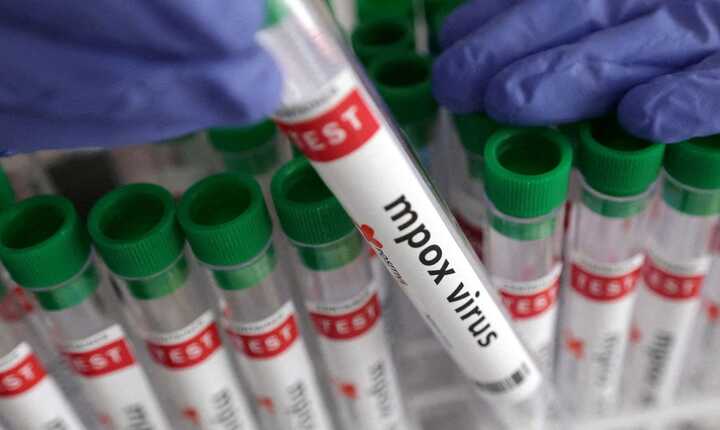The UK Health Security Agency says a single case of mpox Clade 1b had been detected in London.
A case of a new strain of mpox has been detected in the UK for the first time, it has been announced.
The UK Health Security Agency (UKHSA) said a single case of the mpox virus variant Clade 1b was detected in London.
There was no evidence of community transmission from the patient, who is being treated at the Royal Free Hospital in London.
The person involved had been on holiday in Africa and travelled back to the UK on an overnight flight on 21 October.
The case was confirmed to the UKHSA on Tuesday.
More than 24 hours later, they developed flu-like symptoms and on 24 October, started to develop a rash which got worse in the following days.
When they attended A&E in London on 27 October, they were swabbed, tested and then isolated while waiting for their results.
Fewer than 10 direct contacts are being traced after the discovery, and Professor Susan Hopkins, chief medical adviser at UKHSA, said the "risk to the UK population remains low".
"It is thanks to our surveillance that we have been able to detect this virus," she said.
This is the first time Clade 1b has been detected in the UK. Germany reported its first Clade 1b case earlier this month.
At least 1,000 deaths from the strain had been reported across Africa at that time, which prompted the World Health Organization (WHO) to declare the increasing spread of the disease a global health emergency for the second time in two years.
Health Secretary Wes Streeting said the government was securing more vaccines and "equipping healthcare professionals with the guidance and tools they need to respond to cases safely".
Common symptoms of mpox include a skin rash or pus-filled lesions which can last two to four weeks. It can also cause fever, headaches, muscle aches, back pain, low energy and swollen lymph nodes.
Mpox, and the Clade 1b strain is usually passed on by close physical contact, contact with infected animals or sexual transmission. Professor Hopkins said there was no evidence of a transpiration route of infection.
Gay and bisexual men and men who have sex with men are considered the most at risk of contracting the virus, and vaccination clinics are focused in London, Manchester and Brighton, according to Professor Hopkins.
Clade Ib mpox has been widely circulating in the Democratic Republic of Congo in recent months and there have also been cases reported in Burundi, Rwanda, Uganda, Kenya, Sweden and India.
Read more similar news:
Comments:
comments powered by Disqus
































